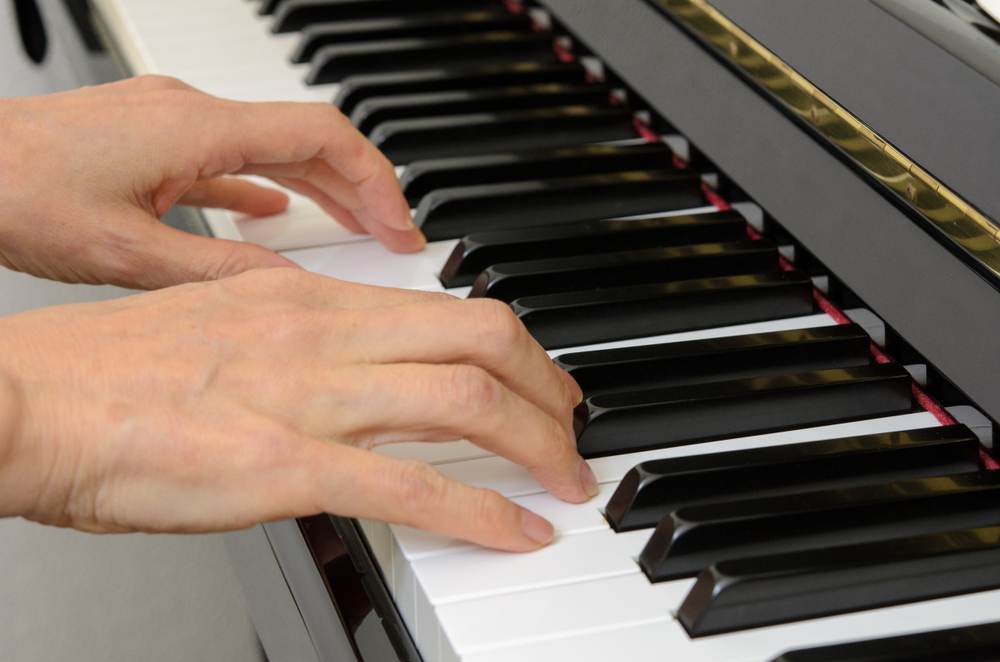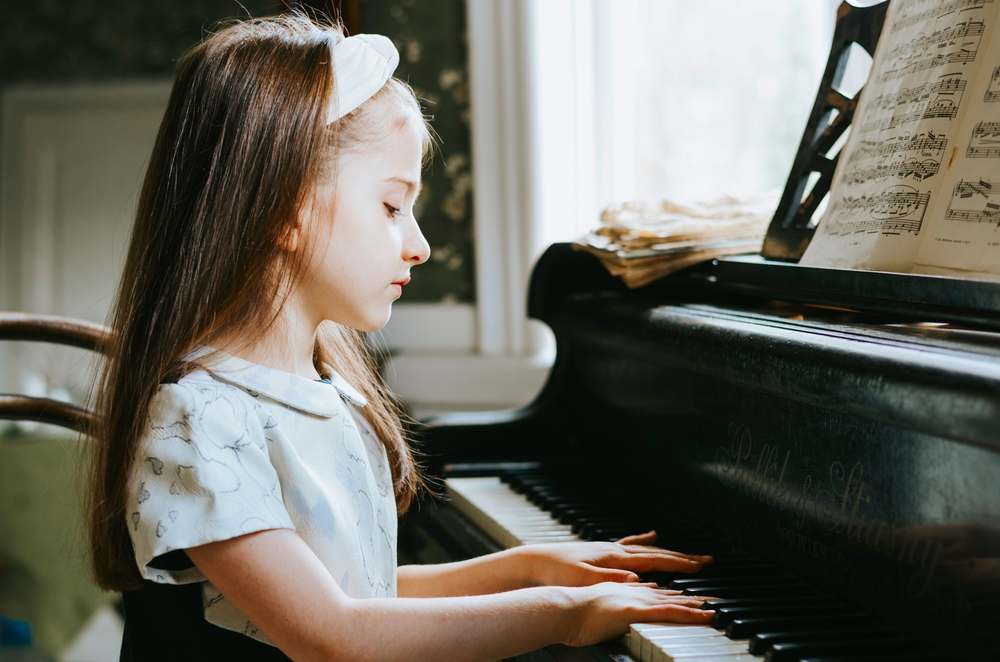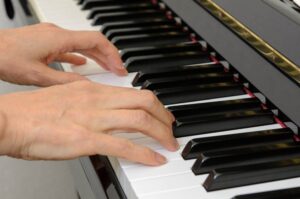
Learning to play the piano can be an exciting new adventure for both children and adults. Just like with learning any other type of new activity, there can be a learning curve. While it doesn’t happen to everyone, it is possible to experience pain in the fingertips from playing the piano. Your hands and fingers are learning new movements and motions, which can take some getting used to as a new pianist. Seasoned pianists can also experience fingertip pain from playing piano for a variety of reasons. Here’s what you need to know about fingertip pain and how to handle and prevent it going forward.
What Causes Fingertip Pain from Playing Piano?
You love playing the piano and get excited about learning new pieces to play and trying new things. But what happens when you suddenly start noticing pain in your hands or fingers? Fingertip pain from playing the piano can be caused by several factors, including:
Overuse
Overuse of the hands and fingers can cause pain, swelling, and tenderness in the fingertips. Repetitive motions can put a strain on tissues like tendons in your fingers, hands, and wrists, resulting in pain and discomfort. This can happen when people practice the piano for long periods of time without taking adequate breaks.
Improper Technique
Playing the piano requires a proper technique for a whole host of reasons, one of which is that it helps you avoid strain or injury. If you play the piano with improper technique, you may end up putting too much pressure or stress on your hands and fingertips, resulting in fingertip pain.
Poor Posture
Sitting with poor posture when you play the piano can put a lot of pressure and strain on different parts of the body. You may not realize that the way you sit can also impact how your arms, hands, and fingertips reach for the keys. You can develop pain and discomfort in the fingertips from playing piano with poor posture, so make sure you maintain good posture while playing!
What to Do When Your Fingertips Start to Hurt During Piano Practice
If your fingertips start to hurt when you are playing the piano, it is important to take action sooner rather than later to prevent further pain or even an injury. When you take a break and rest, you allow the affected area a chance to heal and recover. This can also be a great time to brush up on your technique and make sure you are taking care of yourself as a musician. Here are four things you can do when your fingertips start to hurt during piano practice:
Rest Your Fingers for One to Two Days
Stop playing the piano as soon as you notice any pain or discomfort, and give yourself one or two days of rest. You don’t want to keep playing and make the pain worse. Instead, take a break and even try applying an ice pack to the affected area to help reduce any swelling and numb the pain.
Return to Piano Practice Gradually
When you experience fingertip pain from playing piano, you may want to return to piano practice gradually to give your hands and fingers a chance to get warmed up again. You can also look into modifying your playing technique to help reduce any strain on your fingers that may impact your fingertips.
Perform Finger and Wrist Exercises Before Practice
Stretches and exercises can help improve circulation and reduce pain and stiffness in your fingers and hands. Warming up properly before playing piano can include simple exercises that incorporate slow, repetitive movements of the hands, fingers, and wrists to prepare your muscles for more intensive playing.
If Fingertip Pain Continues, Consult with Your Doctor
If you continue to experience fingertip pain from playing the piano, talk to your doctor to find out more about the cause of the pain and learn about recommended treatments, which could include physical therapy or medication.
Tips for Preventing Pain in Fingertips When Playing the Piano

To help avoid or reduce the risk of fingertip pain from playing the piano, check out these tips for preventing pain while still participating in an activity you love:
Do Not Overpractice
If you have a recital coming up or are really excited about learning a new piece, you may be tempted to practice for long periods of time to get things just right. However, playing piano for extended periods without taking breaks can put a lot of stress and strain on your hands and fingers. Instead, give your hands and fingers time to rest and recover in between practice sessions.
Practicing Proper Hand and Finger Placement
Make sure you use the correct hand and finger placement when you are playing the piano. A private piano teacher can provide you with guidance and support on proper technique and help you improve based on your own body mechanics.
Make Sure to Warm Up Properly Before Playing
Take the time to warm up your hands and fingers before practicing or performing the piano. Gentle stretches and exercises boost circulation and help reduce the risk of injury. This can also help reduce tension and give your hands and fingers time to adjust.
Incorporate Strengthening Piano Exercises in Your Practice Routine
Incorporating strengthening exercises into your piano practice routine can help improve your playing technique and increase your dexterity and control. Exercises in your practice routine can help you play the piano with greater ease and enjoyment.
Always Have Proper Piano Playing Posture
You also want to make sure your piano bench is at the correct height and angle to allow you to play with good posture. Pay attention to your posture when warming up as well as while playing to make sure you give your body the proper support it needs while you play. Sit up straight, keep your feet flat on the floor, and maintain a relaxed, natural position throughout your playing.
Start Piano Lessons In Your Home Today!
Lessons In Your Home offers private piano lessons in your home or virtually, where you will receive one-on-one attention and support as you learn to play the piano. Whether you are just getting started or hoping to improve your skills, our trusted and passionate piano teachers come to your home and work with your schedule for convenient piano lessons. Visit us online or call to learn more about our private piano lessons and get started today with Lessons In Your Home. Our piano teachers cover everything from musical history to the proper technique for playing the piano so you can receive personalized attention and quality instruction while you learn to play the piano.
